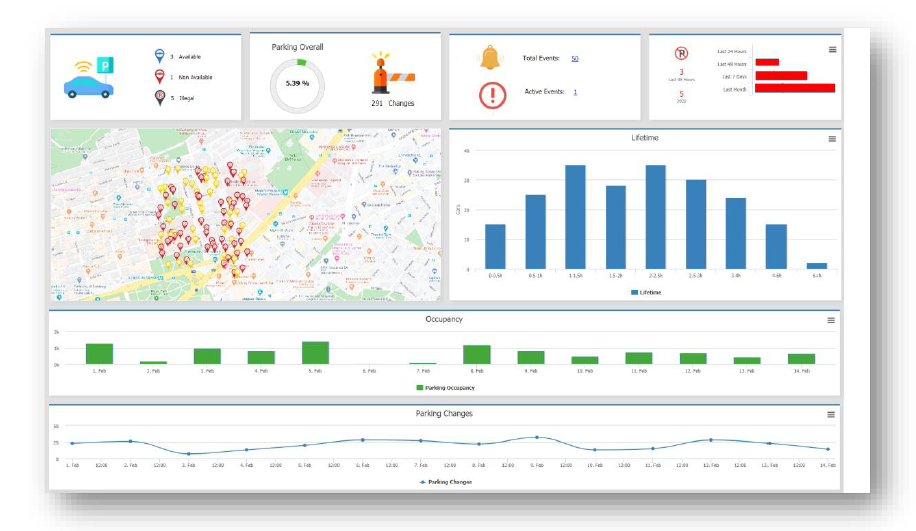Rethymno's intelligent systems for mobility authorities and urban planners new

The absence of reliable, real-time (and location-specific) traffic and environmental data was a crucial challenge for sustainable mobility planning in Rethymno, a city of only 60,000 residents, which welcomes more than 500,000 visitors every summer.
To this end, an integrated, two-level monitoring system for urban planners was developed to allow for real-time monitoring and analysis of traffic load, mobility and environmental data, and hence to support decision making, assessment and improvement of the city’s SUMP action plan.
The monitoring system consists of:
1. Eleven thermal cameras, which comply with the European Data Protection Regulation, installed by the Municipality of Rethymno in select city locations. Numerous traffic load datasets are collected via a web-based platform in real-time and analysed.
2. An environmental monitoring system consisting of five meteorological stations with environmental sensors measure traffic pollutant concentrations, greenhouse gas emissions, noise levela, ambient air temperatures, humidity levels, and wind speed.
Developed by the Renewable and Sustainable Energy Systems Lab of the Technical University of Crete (TUC), the system complements an efficient management system, which provides uninterrupted online monitoring of traffic and environmental conditions. Correlations between traffic and environmental indicators showcase the impact of tourism flows on the city’s transportation system and environmental quality, and help identify areas requiring interventions.

Rethymno is also innovative at the regional level, as it has the first Smart Car Parking Management System in the region, which is incorporated into an IT platform that utilises combined smart applications and management tools. The 400 sensors in municipal parking places provide information about available spaces in real-time, through a web-based application. This mitigates time spent unsuccessfully searching for parking, and therefore benefits citizens and tourists by preventing the waste of time, increased congestion, fuel consumption and emissions. “Smart” bus stop signs provide real-time information about public transport services, with this information also being incorporated into the same overall IT platform.

Rethymno and TUC works with CIVITAS and more broadly to share the experiences gained and lessons learned from their Intelligent Transportation Systems and “smart management” services. This has thereby enhanced dissemination to other locales, and ensures a focus remains on replication potential of solutions.
Authors: S. Tournaki and M. Aryblia, Technical University of Crete
Images: all images provided courtesy of the authors (Technical University of Crete)
Authors: Stavroula Tournaki, Maria Aryblia








